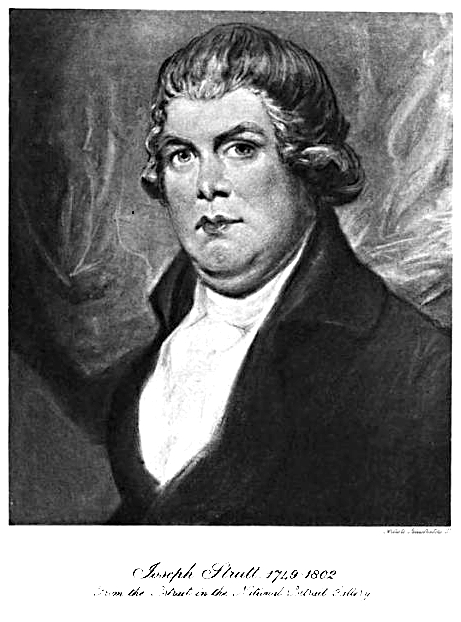pg. 57
The Sports and Pastimes of the People of England (1801), Weapons
Joseph Strutt: Frases en inglés
pg. xxiv
The Sports and Pastimes of the People of England (1801), Chivalry
pg. 39
The Sports and Pastimes of the People of England (1801), Hunting
pg. 291
The Sports and Pastimes of the People of England (1801), Bell ringing
pg. 259
The Sports and Pastimes of the People of England (1801), Minstrels
pg. 37
The Sports and Pastimes of the People of England (1801), Collective nouns
pg. 388
The Sports and Pastimes of the People of England (1801), Cruelty to insects
pg. 269
The Sports and Pastimes of the People of England (1801), Bowling alleys
pg. 293
The Sports and Pastimes of the People of England (1801), Bell ringing
pg. 368
The Sports and Pastimes of the People of England (1801), Phillip Stubbes
pg. 302
The Sports and Pastimes of the People of England (1801), Obscure games
pg. 239
The Sports and Pastimes of the People of England (1801), Public entertainment
pg. 280
The Sports and Pastimes of the People of England (1801), Public entertainment
pg. 28
The Sports and Pastimes of the People of England (1801), Hunting
pg. 292
The Sports and Pastimes of the People of England (1801), Bell ringing
xx
The Sports and Pastimes of the People of England (1801), Education
pg. 327
The Sports and Pastimes of the People of England (1801), Cards
pg. xxviii
The Sports and Pastimes of the People of England (1801), Chivalry
pg. 14
The Sports and Pastimes of the People of England (1801), Hunting
pg. 237
The Sports and Pastimes of the People of England (1801), Public entertainment
pg. xx
The Sports and Pastimes of the People of England (1801), Dice
pg. 192
The Sports and Pastimes of the People of England (1801), Minstrels
pg. 339
The Sports and Pastimes of the People of England (1801), Christmas
pg. 248
The Sports and Pastimes of the People of England (1801), Public entertainment
pg. 103
The Sports and Pastimes of the People of England (1801), Croquet
pg. 10
The Sports and Pastimes of the People of England (1801), Hunting
pg. 250
The Sports and Pastimes of the People of England (1801), Public entertainment
pg. 345
The Sports and Pastimes of the People of England (1801), Festival of Fools
pg. 22
The Sports and Pastimes of the People of England (1801), Animals
pg. 49
The Sports and Pastimes of the People of England (1801), Danes
